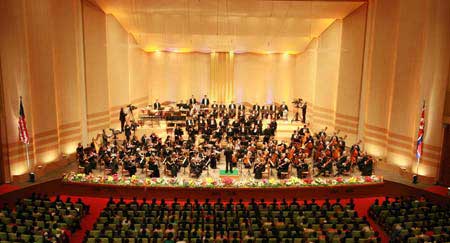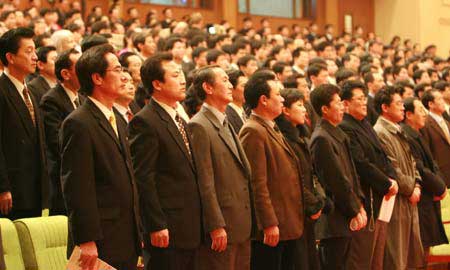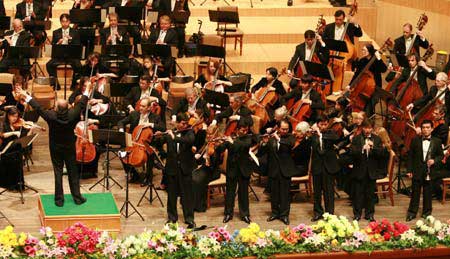Drew McManus, the perceptive mind behind the great orchestra management blog Adaptistration and chief architect for the Inside the Arts blog network, recently appeared on WNYC’s Soundcheck alongside Norman Lebrecht, author of Who Killed Classical Music? and other such analytical works on the classical music world. Both McManus and Lebrecht offered their perspective on the New York Philharmonic’s recent visit to North Korea, which marks the largest contingent of Americans to visit this military dictatorship in over 50 years. This visit has garnered much controversy in the press, with arguments both in favor of and against this visit being put forth from figures both inside and outside the world of music.
Check out the interview through this link to Drew’s Adaptistration post.

Getting a chance to hear McManus and Lebrecht debate this issue from a musically informed perspective is quite interesting, and both make thought-provoking arguments both for the visit (McManus) and against it (Lebrecht). Lebrecht points out the striking contrast in musical quality between the North Korean orchestras and the New York Philharmonic.
Anyone who has ever looked at photographs from space showing the vast expanse of lights making up Europe, the United States, and the rest of the developing world has probably noticed the striking contrast between North Korea and South Korea. One can actually outline North Korea’s borders based on these lights–the intense illumination from South Korea suddenly vanishes at the demilitarized zone, with North Korea spreading out from that border as a vast black undeveloped expanse. Bringing the New York Philharmonic to North Korea is a great representation of the first world (that bright expanse of illumination) clashing with the third world.

Will this visit cause the collapse of the North Korean regime? Of course not. Will it influence international relations between these two vastly different nations? Possibly. Still, humans are humans, and if the North Korean government won’t allow its citizens to see the outside world through television, print media, or the Internet, allowing them to see the music of the first world may be the closest contact that their citizens will have with the offerings of the first world.

Though Lebrecht’s bull-in-a-china-shop approach to this issue can easily grate on one’s nerves, this episode is definitely worth a listen. Drew’s view of this visit as an opportunity for cultural ambassadorship comes across as both progressive and sensible, while Lebrecht’s reactionary stance resonates as hawkish and old-fashioned.

It is hard for me to see this North Korean visit as a sign that the United States is acquiescing to repressive regimes. Lebrecht points out that, while the United States did engage in cultural ambassadorship with the Soviet Union under Khrushchev, this did not occur under Stalinist rule. Drew points out that Cuba and the United States have not engaged in cultural exchanges either–how well has that worked out?
Regardless of what benefit (if any) this trip will have for international relations between the United States and North Korea, one can’t help but be pleased that the activities of a classical music organization are making news headlines and precipitating debate. Could classical music have relevance in the modern world? Can arts organizations influence policy and have a significant impact on the political landscape? In this case, at least, music proves its relevance as a means of cultural exchange and a powerful manifestation of national pride.
Bass News Right To Your Inbox!
Subscribe to get our weekly newsletter covering the double bass world.

Ummm.. that is the most ethnocentric thing I have read in a really long time.
Bordering on the ridiculous to be honest.
Medieval darkness?
Care to leave your name when engaging in negative criticism? That borders on the ridiculous, to be honest.
O.K.
The comment was negative and there is no disputing this fact. The basis for my comment is the fact that we shouldn’t run around calling other cultures medieval ect because they dont possess as many shiny things as us in North America.
I do read your blog on a regular basis and really dig it to be honest, I think that really more than anything I was shocked at what I read because it really doesn’t hold up to your usual standard.
Sorry if I pissed you off but hey, we are all entitled to our own opinions and I guess that our opinions dont gell in this particular area.
Cheers Jason,
Grant Curle